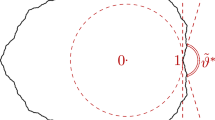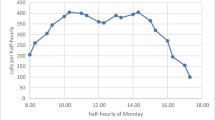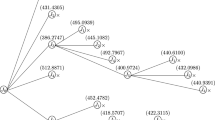Abstract.
We introduce a family of undiscounted branching bandits on parallel servers under controls which can impose priorities between customer classes. This family can be used to model a wide range of multi-class queueing scheduling problems, with the capacity to incorporate problem features such as machine breakdowns, complex patterns of preemption/non-preemption and semi-Markov extensions. An index policy (which we call Klimov's rule) is developed which is optimal in the particular case of a single server. An expression for its cost suboptimality is given for parallel servers. Under additional conditions on the nature of the stochastic evolution of the systems concerned, the policy is shown to be asymptotically optimal in a heavy traffic limit. These general results are utilised to develop an analysis of the index policy for a parallel server version of Klimov's classical M/GI/1 system with Bernoulli feedback.
Similar content being viewed by others
Author information
Authors and Affiliations
Additional information
This work was supported by the Engineering and Physical Research Council through the award of grant GR/M09308. The author would also like to express his appreciation to Professor I. C. Paschalidis for helpful discussions on Klimov's problem and to Professors J. Niño-Mora and G. Weiss for many discussions and much encouragement
Rights and permissions
About this article
Cite this article
Glazebrook, K. An analysis of Klimov's problem with parallel servers. Math Meth Oper Res 58, 1–28 (2003). https://doi.org/10.1007/s001860300278
Issue Date:
DOI: https://doi.org/10.1007/s001860300278




